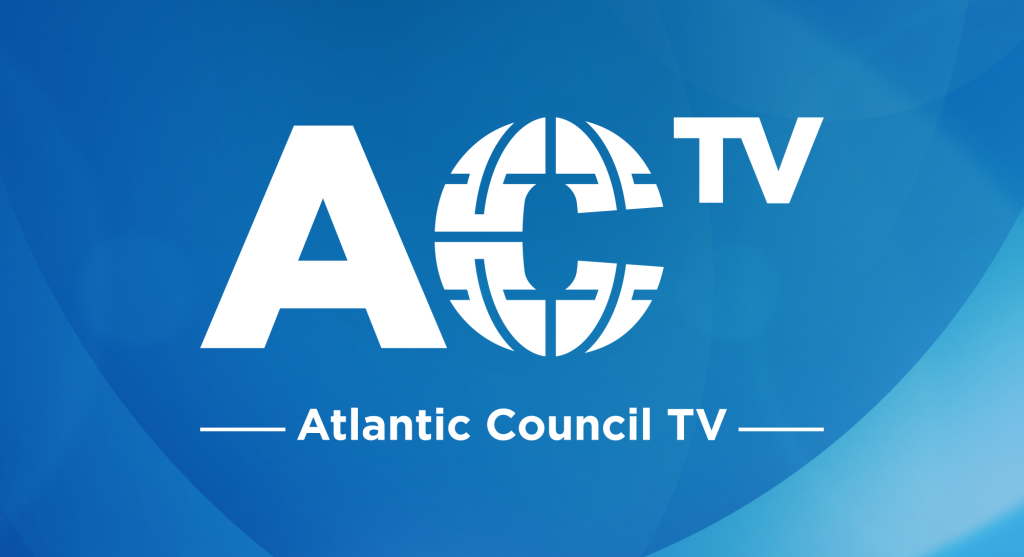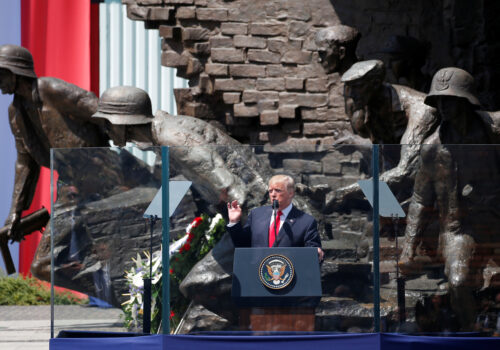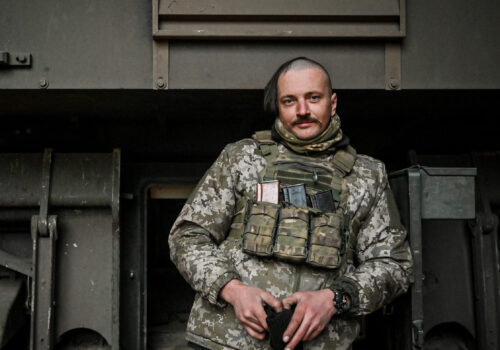Please join the Atlantic Council’s Eurasia Center and Transatlantic Security Initiative, in the Scowcroft Center for Strategy and Security, for a public event evaluating Russian hybrid warfare tactics and the threat they pose to defense and deterrence on NATO’s eastern flank. This event will take place virtually on Tuesday, May 28, from 11am to 12pm ET.
In early May, Estonia’s foreign ministry summoned Tallinn’s Russian embassy chief after a Finnish airline paused flights to eastern Estonia due to GPS disturbances, for which it believes Russia to be the culprit. The incident is one of many, as countries in the region have experienced electronic signal jamming and other forms of hybrid aggression for years. Since Russia’s full-scale invasion, nearly all airlines flying over the Baltics have experienced issues with their navigation.
Kremlin provocations against its NATO neighbors are not limited to signal jamming—the latest disruptions are part of a broader pattern of Russian provocations in the Baltics, and in other countries such as Sweden, Finland, and Poland. Russia regularly turns to hybrid aggression and other tactics below the threshold of war, breaching these countries’ air space and territorial waters, permitting or encouraging migrants from third countries to arrive in large numbers at their borders through Russia and Belarus, and in one instance, the kidnapping of an intelligence officer.
The Baltic states have been among the loudest voices in NATO pushing the Alliance to take necessary steps to counter the Russian threat since Russia’s full-scale invasion of Ukraine. With concerns around increasing levels of hybrid attacks by Russia, many believe that should Moscow win in Ukraine, defenses on NATO’s eastern flank will be the next to be tested.
How should we understand the persistence of hybrid attacks by Russia against countries in the Baltics, as well as other NATO allies in the region? What steps can NATO take to deter Russian attacks below the threshold of war? To answer these questions, the Atlantic Council will convene leading experts for a conversation on the mounting threat Russia’s hybrid warfare poses to the Alliance.
This event is part of the Atlantic Council’s NATO Washington Summit campaign. For more information and updates on future events and publications, follow @AtlanticCouncil.
Speakers
Elisabeth Braw
Senior Fellow, Transatlantic Security Initiative
Atlantic Council
Konstantin von Eggert
Columnist
Deutsche Welle Russian Service
H.E. Kristjan Prikk
Ambassador of the Republic of Estonia to the United States
Viktorija Rusinaité
Director, Research & Analysis
The European Centre of Excellence for Countering Hybrid Threats
Moderated by
This event will not feature an in-person audience. You will be able to join via desktop or mobile app, through your web browser, or by phone. To join the question and answer period, you must join by app or web.
Register above for details on joining the virtual audience.
Stay connected
Follow us on social media
and support our work
issue spotlight

Europe in crisis
War in Ukraine
Experts from across the Atlantic Council are assessing the consequences of Russia’s February 2022 invasion, including what it means for Ukraine’s sovereignty, Europe’s security, and the United States’ leadership.

The Eurasia Center’s mission is to promote policies that strengthen stability, democratic values, and prosperity in Eurasia, from Eastern Europe in the West to the Caucasus, Russia, and Central Asia in the East.

The Transatlantic Security Initiative, in the Scowcroft Center for Strategy and Security, shapes and influences the debate on the greatest security challenges facing the North Atlantic Alliance and its key partners.
Atlantic Council TV

Watch this event and more content on ACTV
Follow the conversations shaping our world. Available on all major platforms.



